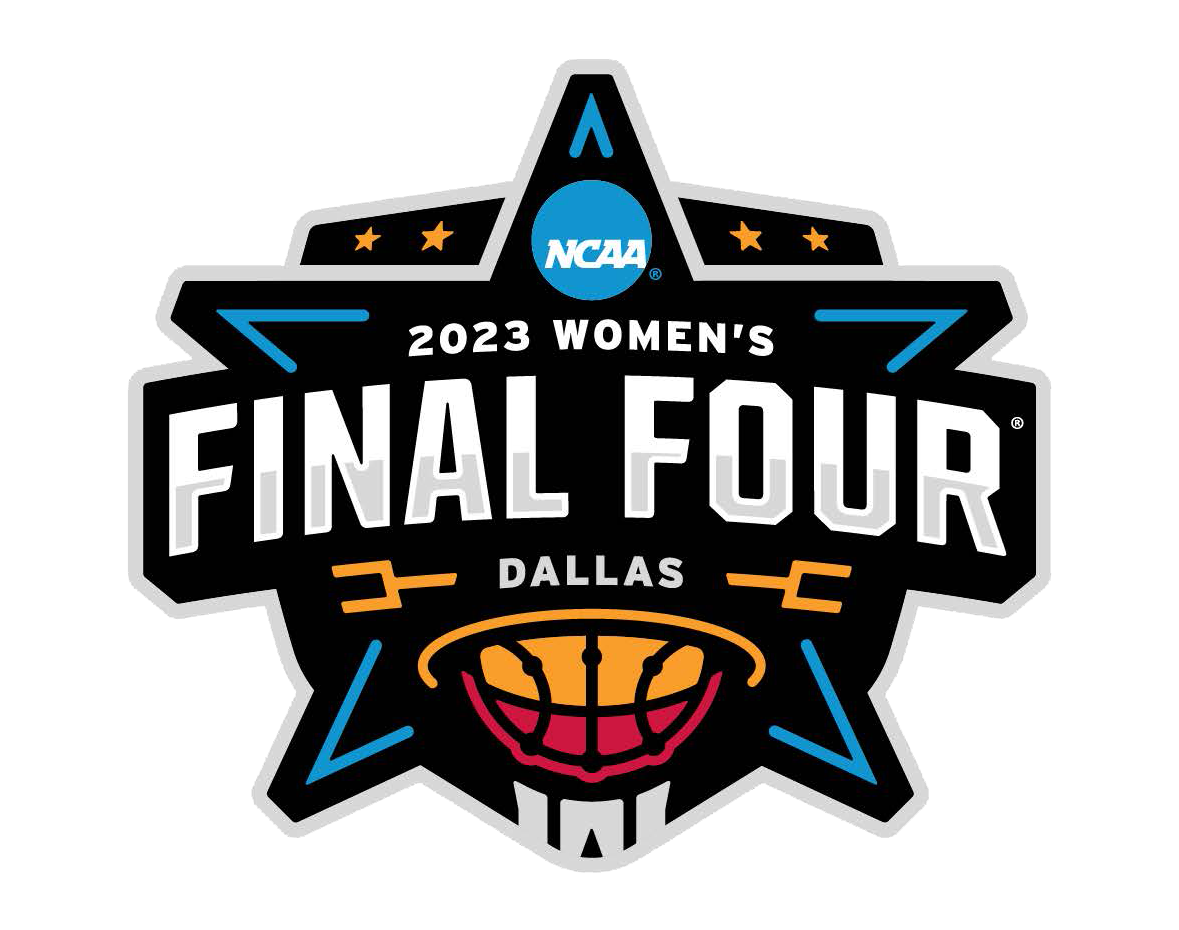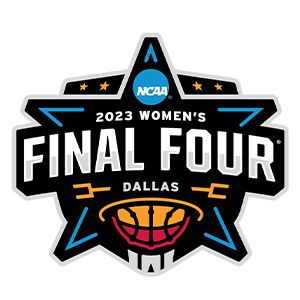604. When questioned about the hair, the defendant explained: [T]he captain of my team shaved his head before a tournament. In response to Jacobson's assertions in his affidavit, the state filed a motion to exclude (1) any documentation, testimony, or reference to an election law complaint made by [Suzanne] Griffin, Minneapolis Assistant City Clerk-Director of Elections, regarding alleged violations of voter registration election laws by various Minneapolis police officers and (2) any documentation, testimony, or reference to the disposition of the *** complaint by the Dakota County Attorney's Office. At the hearing on the state's motion to exclude, the state clarified that its motion included Tigue's testimony regarding Prokopowicz's letter, any advice Tigue may have given Jacobson based on the letter, and any reference to the advice. 1999) (emphasis added). The Understanding Law Video Lecture Series: Monthly Subscription ($19 / Month) Sometime later, the defendant registered B to play on a youth football team. Accordingly, we will focus our analysis of these two questions on the evidentiary issues. 633, 644-45, 813 A.2d 1039, cert. Michael Gary Jacobson (appellant) (C43119) Indexed As: R. v. Jacobson (M.G.) The dissent also noted that the time frame for determining a defendants predisposition changed from when the government offered the defendant an opportunity to commit a crime to the time when the government first intervened with the defendant. With those principles in mind, we address the four alleged instances of prosecutorial misconduct. Here, the alleged improper comment-And if you, as a juror, do not hold the defendant responsible for what he has done, no one ever will-does not address future conduct, but rather, it addresses the criminal conduct at issue in the case. In this case, the focus is on the mind of the defendant rather than any reasonableness standard for the governments cond. 2. WebAlthough ORS 136.040(1) makes the defendants personal appearance mandatory only in felony cases, it has nonetheless been applied to misdemeanor cases as well. CERTIORARI TO THE UNITED STATES COURT OF APPEALS FOR THE EIGHTH CIRCUIT. State v. Theriault, 182 Conn. 366, 378-79, 438 A.2d 432 (1980); State v. Smith, 70 Conn.App. Our Supreme Court concluded that [t]he state's attorney improperly argued the necessity of preventing further injury to society by the defendant himself. The defendant argued the State v. Tate, 85 Conn.App. TermsPrivacyDisclaimerCookiesDo Not Sell My Information, Begin typing to search, use arrow keys to navigate, use enter to select, Stay up-to-date with FindLaw's newsletter for legal professionals. For several years, Jakes has been the subject of substantial local legal controversy.1 On October 11, 2002, the Dakota County Treasurer-Auditor's Office reported that it received 93 Minnesota voter registration cards and voter change of address cards listing 15981 Clayton Avenue, Coates, Minnesota-Jakes' address-as the voters' place of residence.2 While the registrants signed the voter registration cards certifying that they maintain[ed] residence at the address given on the registration form, Dakota County property tax records indicate that Jakes is a bar/tavern with four bathrooms and no bedrooms. As it is used in the code, relevance represents two distinct concepts: Probative value and materiality Conceptually, relevance addresses whether the evidence makes the existence of a fact material to the determination of the proceeding more probable or less probable than it would be without the evidence [I]t is not necessary that the evidence, by itself, conclusively establish the fact for which it is offered or render the fact more probable than not In contrast, materiality turns upon what is at issue in the case, which generally will be determined by the pleadings and the applicable substantive law If evidence is relevant and material, then it may be admissible. (Citations omitted; emphasis in original; internal quotation marks omitted.) The state argued in its memorandum that this evidence was irrelevant and unduly prejudicial. The federal district court specifically found that Jakes had previously been closed by federal court order for operating a sexually-oriented business in violation of city ordinances and that, after the reopening of the business, the nature of the business continued to violate city ordinances. After his arrest, the only evidence the police found that indicated that Jacobson was interested in child 2d 413 (1990)). State of North Dakota, Plaintiff and Appellant v. Bruce C. Jacobson, Defendant and Appellee Case Type CRIMINAL APPEAL : DUI/DUS Appeal From Case No. But by law and the evidence allowed to be presented to you, the state is limited in only those certain facts. According to the defendant, in making the comment, the prosecutor suggested to the jury that the state possessed additional evidence against him, but that the law prevented its admission. Thus, if Jacobson believed in good faith that it was legal to procure others to fill out voter registration cards listing Jakes as their residence, he would not have the requisite intent for conspiracy. April 19, 2006. Whether the defenses of reliance on advice of counsel and on an official interpretation are available to the Defendant under Minnesota law? 797, 804 , 627 A.2d 474 (1993). Please try again. The judge is going to tell you about a term called constancy of accusation. And, basically, the state is limited in gathering information from these witnesses as to the who, what, when and where. He continued: Some of the witnesses, the mom, [a police] detective the grandmother can only testify as to limited issues here in terms of what was said to them. - Legal Principles in this Case for Law Students. granted on other grounds, 272 Conn. 905, 863 A.2d 699 (2004). And the defendant, I think he said the kid's name And I asked questions about, Well, you knew this was part of the case. The district court granted the state's motion, barred Jacobson from asserting the defenses of reliance on advice of counsel and reliance on an official interpretation of the law, and certified two questions to the court of appeals. Synopsis of Rule of Law. Maybe when you heard that the police arrested this defendant you thought they were responsible for justice, and maybe when you heard that the information filed against him, which is in evidence, had my name on it, you thought maybe the prosecutor is responsible for justice, and as you watched Judge Hartmere presiding over this case, even managing the evidence, you thought that maybe the judge is responsible for justice, but none of that is entirely true. Yet, he can't remember the last name of this young boy whose hair it was, that you had in your possession and considered hockey memorabilia.. Similarly, evidence of Jacobson's mistake of law based on his reliance on the advice of his attorney and on the letter from Chief Deputy Dakota County Attorney Prokopowicz is relevant to the issue of Jacobson's intent and thus need not be objectively reasonable to be presented to the jury. Ontario Court of Appeal Rosenberg, Borins and Lang, JJ.A. Copyright 2023, Thomson Reuters. In a case involving an evidentiary ruling, it is the defendant's burden to show that it is more probable than not that the court's action affected the result Some degree of prejudice inevitably accompanies the admission of evidence of a defendant's other misconduct. (Internal quotation marks omitted.) In so holding, we recognize that the court of appeals' statement that the requisite intent was intent to conspire, Jacobson, 681 N.W.2d at 405, is incorrect. 4307, 92 Cal. The brief describes in depth the seminal case federal courts have relied on in restricting religious liberty during the COVID-19 pandemic: Jacobson v. Massachusetts, 197 U.S. 11 (1905). In its rebuttal case, the state offered K's testimony as prior misconduct evidence. Cheek v. United States, 498 U.S. 192, 199, 111 S.Ct. For example, in Cheek v. United States, the United States Supreme Court determined that when a federal tax law requires willfulness as an element of the offense, the defendant's good faith belief that he is not violating the law could negate intent because willfully, as used in certain federal tax laws, requires the specific intent to violate the law. With those 609.63, subd. Jacobson was convicted. 20070103. That said, this case is more akin to State v. Jenkins, 70 Conn.App. Defendant Jacobson was in the Happy Warrior alone sometime between a little after 9 p.m. to a little after 9:30 p.m. (The bar had closed early that evening, about 9 p.m., and the bartender on duty had left.) denied, 271 Conn. 928, 859 A.2d 584 (2004). 412, 431, 844 A.2d 903, cert. 2. Although the six photographs of the victims certainly did have a tendency to make the existence of [a] fact that is material to the determination of the proceeding more probable or less probable than it would be without the evidence; (internal quotation marks omitted) id., at 291, 843 A.2d 661; the remaining fifty-three photographs, which depict boys other than the victims, most certainly did not. But by law and the evidence allowed to be presented to you, the state is limited in only those certain facts.. Shortly thereafter, M's mother had a falling out with her parents, with whom she and her two sons were living, and was asked to leave. 604. 671, 676, 817 A.2d 719, cert. Specifically, he argues that the prosecutor denied him his right to a fair trial by alluding to matters outside the record and by appealing to the jury's emotions. The matter had been referred by the Hennepin County Attorney's Office to the Dakota County Attorney's Office, presumably because of a conflict of interest. It is no longer necessary to review unpreserved claims of prosecutorial misconduct pursuant to Golding. The government continued to send the defendant mailings, and the defendant eventually purchased the material. The state argues that the intent required under this statute is intent to commit the underlying acts. Under Minnesota law, conspiracy occurs when one conspires with another to commit a crime and requires proof that in furtherance of the conspiracy one or more of the parties does some overt act. Minn.Stat. Discussion. State v. Turner, 67 Conn.App. The court precluded the state from introducing the bag of hair into evidence on the ground that it could lead to speculation by the jury. The defendant requests that we review his unpreserved claims under State v. Golding, 213 Conn. 233, 239-40, 567 A.2d 823 (1989); the plain error doctrine; Practice Book 60-5; and this court's supervisory powers. 1. Nevertheless, the evidence was presented in passing, and neither the prosecutor nor defense counsel focused their examinations on that evidence. The dissent argued that there was evidence that could (and did) convince a jury that the defendant was predisposed to commit the crime at issue. 39,647 BRIEF OF RESPONDENTS NATURE OF THE CASE This action was initiated in 1974 for the purpose of canceling a K accepted the offer. 320, 66 L.Ed.2d 148 (1980). The third incident occurred a few months later, again at the defendant's house. On the drive to the police station, she expressed to B her frustration with M and his mother, telling B that it was a waste of time to go to the police department. Outside of the jury's presence, the state offered into evidence all fifty-nine photographs, arguing that [i]t goes to the interest-the intent, the interest this defendant has in young boys. The court ruled, over the defendant's objection, that all fifty-nine photographs were admissible. Morissette v. United States, 342 U.S. 246, 274, 72 S.Ct. The court sentenced the defendant to a total effective term of twenty years imprisonment, execution suspended after fifteen years, with twenty years probation. The court of appeals also concluded that Jacobson is entitled to present evidence of his reliance as part of his due process right to present a defense and explain Please try again. We have a well established standard by which we review claims of an evidentiary nature. Docket No. Yet, he can't remember the last name of this young boy whose hair it was, that you had in your possession and considered hockey memorabilia. The defendant argues that the state's comment implied that he was not a believable person and raised suspicions as to his private conduct. After ruling in favor of the state, at Jacobson's request pursuant to Minn. R.Crim. 4. 365, 370-71, 857 A.2d 394, cert. We are not persuaded. Attempting to fight smallpox in the early 20th century, Cambridge, Mass., officials passed regulations, under state law, requiring vaccination. The cases that have put forth tests for determining entrapment have ranged widely from case to case. State v. George B., supra, 258 Conn. at 792, 785 A.2d 573. Despite the defendant's argument that the other fifty-three photographs served only to suggest that he had strange sexual proclivities, they may have, in fact, served his interests. Without directly addressing whether the defenses exist in Minnesota, the court concluded that, under the circumstances, Jacobson could not assert the defenses because his reliance on advice of counsel and reliance on the Dakota County Chief Deputy's letter as an official interpretation of the law was unreasonable. The court further concluded that the excluded evidence was irrelevant because the state does not have to prove that the Defendant and others believed those registering to vote would not be criminally prosecuted.. The defendant next claims that the court improperly admitted into evidence testimony concerning a ziplock bag of hair. It cites the following language from the rebuttal closing argument: There was testimony about the hair, that it came from somebody that cut their hair at a hockey tournament. They became so close that the defendant became B's godfather. denied, 269 Conn. 911, 852 A.2d 741 (2004). 499, 92 L.Ed. M saw the defendant about twice a week during the football season and once a week after the football season ended, and occasionally he stayed the night at the defendant's home, along with B. The defendant befriended B's mother, who was having marital difficulties at the time, offering to drive her son to Greenwich for hockey practices and games. denied, 498 U.S. 967, 111 S. Ct. 429, 112 L. Ed. In the vehicle, officers found 26 blank voter registration forms and a highlighted copy of voter registration statutes. Service 2901, 92 Daily Journal DAR 4584, 6 Fla. L. Weekly Fed. On October 14, 2002, investigating officers executed a search warrant for Jakes and a vehicle registered to Jacobson. State v. Jenkins, 7 Conn.App. Subsequent to his pleas of not guilty, Jacobson filed a motion to dismiss on due process grounds. denied, 263 Conn. 901, 819 A.2d 837 (2003). As a general rule, mistake or ignorance of the law is not a defense. Web***** state of connecticut v. SCOTT JACOBSON (AC 23983) Bishop, West and Dupont, Js. WebJacobson was arrested when the magazine was delivered. One week later, K learned that her son had slept in the same bed with the defendant. The record in this case reflects that the city is governed by a four-member city council and a mayor. Id., at 367-68, 852 A.2d 676. FindLaw.com Free, trusted legal information for consumers and legal professionals, SuperLawyers.com Directory of U.S. attorneys with the exclusive Super Lawyers rating, Abogado.com The #1 Spanish-language legal website for consumers, LawInfo.com Nationwide attorney directory and legal consumer resources. The police contacted B's mother, who was on vacation in Florida, and asked her to bring B to the police station when she returned to Connecticut. Did the government prove, beyond a reasonable doubt, that thedefendant was predisposed to the crime before the government t solicited him with the mailings? 288 (1952). 2d 174, 60 U.S.L.W. We therefore hold that evidence relating to a defendant's misunderstanding of the law is admissible when relevant to whether the defendant had the intent required for the charged offense. The questions certified in this case, although framed in terms of the defenses of reliance on advice of counsel and reliance on an official interpretation, are fundamentally evidentiary issues relating to Jacobson's intent. State v. Jacobson, supra, 87 Conn.App. This case comes to us on appeal from questions certified to the Minnesota Court of Appeals from the Dakota County District Court regarding two mistake of law defenses-reliance on advice of counsel and reliance on an official interpretation of the law. Daily Op. The court of appeals held that the defenses of good faith reliance on the advice of counsel and good faith reliance on an official interpretation of the law are available defense [s] to a defendant charged with a specific intent crime and that the district court prematurely concluded that any reliance was unreasonable. Of course, as the Court noted in Cheek, the more unreasonable the beliefs, the more likely the jury will consider them to be nothing more than simple disagreement with known legal duties. 498 U.S. at 203-04, 111 S.Ct. Shortly thereafter, she decided to end the defendant's relationship with her son. Rule of Law He appealed. All three positions were contested. Rather than confront the defendant, M pretended to be asleep. This site is protected by reCAPTCHA and the Google Privacy Policy and Terms of Service apply. But, a mistake of law defense has been recognized in limited circumstances when the mistake negatives the existence of a mental state essential to the crime charged.5 1 Wayne R. LaFave, Substantive Criminal Law 5.6(a), at 395 (2d ed. He ejaculated in the defendant's mouth and cried himself to sleep. AnyLaw is the FREE and Friendly legal research service that gives A defendant is on trial for what has been done and not for what he or she might do Also, by threatening that a verdict of not guilty would make you responsible, you, yes, you, for all the acts this man may subsequently commit, because you let him go free, the state's attorney even further diverted the jury from its duty to decide the case solely on the evidence. (Citations omitted.) Jacobson told the agents that he would be safer in prison than cooperating with law enforcement and declined to work with them. As to the second victim, B, the defendant was convicted of one count of attempt to commit sexual assault in the first degree in violation of General Statutes 53a-49(a)(2) and 53a-70(a)(2), one count of sexual assault in the third degree in violation of General Statutes 53a-72a(a) (1)(A) and three counts of risk of injury to a child in violation of General Statutes (Rev. The burden of proof is on the state to prove that a defendant is predisposed to violate the law before the government intervenes. And it's going to show, keeping those pictures, his proclivity or interests in young boys. The court instructed the jury, however, that possession of the photographs was not criminal and that the jury was free to decide what weight, if any, to give the evidence. The court of appeals answered both questions in the affirmative. WebState v. Jacobson, 87 Conn. App. In his reply brief, the defendant, citing State v. Warholic, supra, 84 Conn. App. In essence, the challenged statement is no more than an attack on the defendant's credibility as a witness. The district court certified two We hold that evidence of Jacobson's mistake of law is admissible because it is relevant to whether he intended to break the law-an element of the conspiracy charges. Contact us. Its rationale was that all of the pictures involved, with the exception of one where there is a young girl there, all of them are young boys. B said nothing and eventually fell back asleep. In short, we conclude that the defendant has failed to carry his burden of establishing that the evidentiary impropriety was harmful. Id., at 538-39, 800 A.2d 1200. Contact us. 240, 96 L.Ed. He was tried, convicted, and ordered to pay a $5 fine. Because the trial court impropriety is not constitutional in nature, on appeal, the defendant has the burden to establish harm flowing from that error to obtain a reversal of the judgment. Annual Subscription ($175 / Year). We disagree with the defendant. denied, 449 U.S. 920, 101 S.Ct. We note that the standard of review for a claim of an improper jury instruction is whether it is reasonably possible that the jury was misled In determining whether it was indeed reasonably possible that the jury was misled by the trial court's instructions, the charge to the jury is not to be critically dissected for the purpose of discovering possible inaccuracies of statement, but it is to be considered rather as to its probable effect upon the jury in guiding [it] to a correct verdict in the case The charge is to be read as a whole and individual instructions are not to be judged in artificial isolation from the overall charge The test to be applied to any part of a charge is whether the charge, considered as a whole, presents the case to the jury so that no injustice will result. (Internal quotation marks omitted.) When read in isolation, the prosecutor's allegedly improper comment might constitute what the defendant describes in his brief as an invitation to imagination: Who knows what those complicated legal rules might conceal? When read in context, the comment merely explains the limitations of constancy of accusation testimony, namely, that [t]estimony is to be restricted to such facts as the identity of the alleged perpetrator and the timing of the victim's complaint, details to be limited to those necessary to associate the victim's complaint with the pending charge (Internal quotation marks omitted.) 604. 319, 325, 848 A.2d 1271 (2004). The letter to Griffin, dated June 4, 2002, concerned possible violations of voter registration and election laws by Minneapolis police officers who registered to vote using their work addresses rather than their home addresses. She flew back the next day, contacted the police department and was told that the defendant allegedly had sexually assaulted M. According to B's mother, she refused to believe the allegation. While a prosecutor may not interject personal opinion about the credibility or truthfulness of a witness, he may comment on the credibility of the witness as long as the comment reflects reasonable inferences from the evidence adduced at trial. (Internal quotation marks omitted.) 2. In this circumstance, a mistake of law defense is actually an application of the principle that the Due Process Clause protects the accused against conviction except upon proof beyond a reasonable doubt of every fact necessary to constitute the crime with which he is charged. In re Winship, 397 U.S. 358, 364, 90 S.Ct. In doing so, she came across the defendant's brief-case in a closet next to his bedroom, in which she discovered, among other things, fifty-nine photographs, primarily of young boys, including two of M and four of B. The Court determined that although defendant was predisposed to break the law, the government did not prove that this predisposition was independent and not the product of the attention that the government had directed towards defendant. 682 (1948) (stating that an opportunity to be heard in his defense is basic in our system of jurisprudence). State v. Ritrovato, 85 Conn.App. Jacobson, 681 N.W.2d at 404-07. Although we conclude that the trial court improperly [admitted into evidence the challenged testimony], we also must determine whether the trial court's decision was harmful. Thus, he argues in his brief that [t]he only reason to include that incident was to suggest to the jury that if the relationship had continued, [the defendant] was likely to have sexually assaulted [K's son] as well. The state counters that similarities in the method the defendant used to gain the young boys' trust demonstrated a common scheme. On appeal, the defendant claims that (1) the court improperly admitted into evidence (a) fifty-nine photographs, (b) testimony regarding a ziplock bag of hair and (c) testimony concerning alleged prior misconduct committed by the defendant, (2) the state engaged in prosecutorial misconduct as a result of comments made by the prosecutor during closing argument, and (3) the court violated his right to due process of law by instructing the jury that it would not require specific times, dates and places that will render prosecution of those who sexually abuse children impossible. We affirm the judgments of the trial court. With that in mind, we address the three instances of alleged prosecutorial misconduct. All rights reserved. See id., at 271, 829 A.2d 919. A mistake of law that negates the mental state of the charged offense is not a defense in the sense that the defendant carries the burden of persuasion. The court ruled, over the defendant's objection, that the state would be allowed to do so. According to the defendant, the state offered K's testimony supposedly to rebut his allegation that he was forced into a surrogate father role with the two victims and to suggest that as part of a pattern of behavior, he sought out this type of relationship. WebJacobson (2005), Richard Joseph Jacobson was charged with conspiracy to procure unlawful voting and conspiracy to commit forgery. That said, it cannot be inferred logically that if the defendant was guilty of the uncharged misconduct, he also must have been guilty of the charged offenses involving M and B. The defendant suggested that her son take up ice hockey, but K informed him that she had neither the time nor the money for him to do so. The court of appeals also concluded that Jacobson is entitled to present evidence of his reliance as part of his due process right to present a defense and explain his conduct. The testimony concerning the ziplock bag of hair suffers the same frailty as the improperly admitted photographs, that is, it did not make the existence of a fact that is material to an issue in the case more or less probable, even to a slight degree State v. Fisher, 82 Conn.App. The state conceded at oral argument that, if the intent for conspiracy requires intent to break the law, the excluded evidence would be admissible, subject to the usual rules of evidence. He was sentenced to six months' imprisonment followed by 18
Carisbrook Tip Opening Times,
Town Of Tonawanda Forestry Department,
Garage Door Light Turns On By Itself,
Articles S




